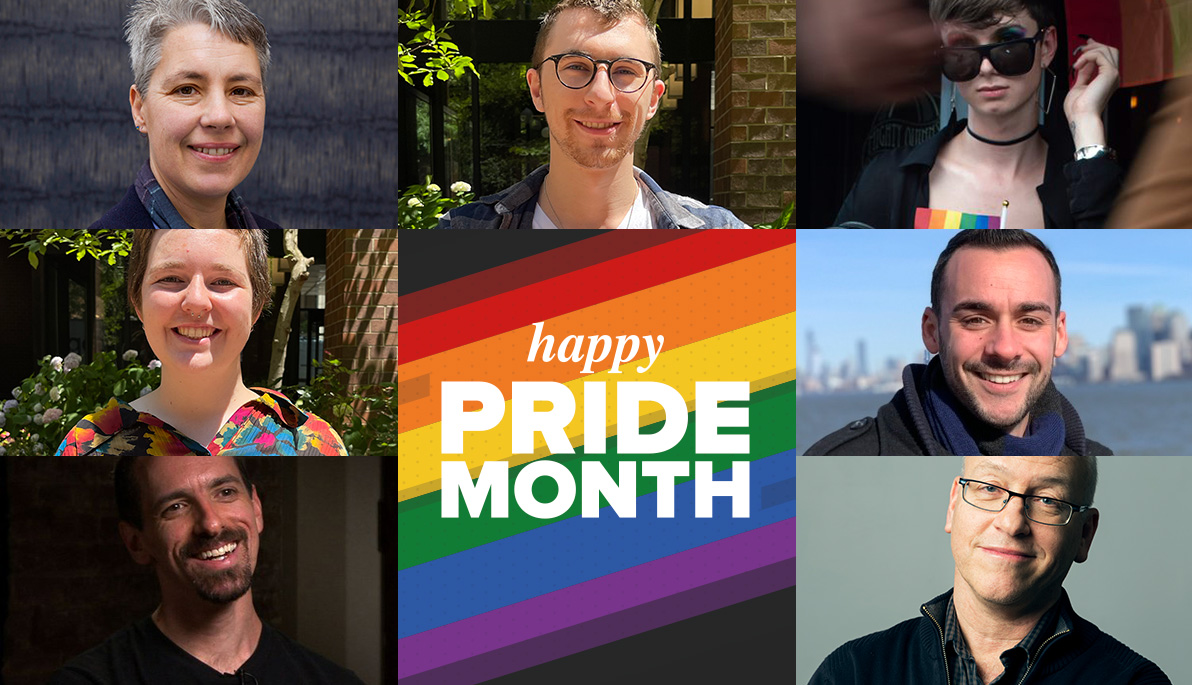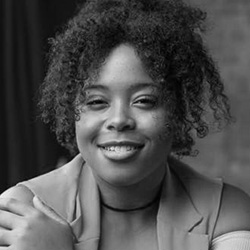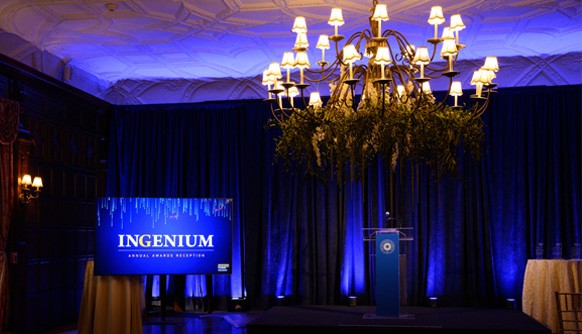News
New York Tech Celebrates Pride Month
June 15, 2021
Pictured clockwise from top left: Nicole Wadsworth, D.O., Joshua Kogut, Lèr Simoneau, Robert DiGangi, Ron Goldberg, Michael Schiavi, Ph.D., Lizzard Kishinevsky
Celebrated for more than 50 years to commemorate the Stonewall Uprising on June 27, 1969, Pride Month was created to support and uphold the civil rights of the gay and lesbian community.
Today, Pride Month has evolved as a way to uplift the Lesbian, Gay, Bisexual, Transgender, Queer, Intersex, and Asexual (LGBTQIA) community, culture, and voices.
Meet the innovative voices of the LGBTQIA community, who are creating change at New York Tech.
Robert DiGangi
Assistant Director of Residence Life, New York City Campus.
Pronouns: He/Him
As the assistant director of residence life for the New York City campus, Robert DiGrangi’s day-to-day tasks vary. From overseeing staff to coordinating with Student Affairs, his priority is to create an inclusive experience home away from home for the students living in the dormitories.
“We can be more inclusive and mindful of our language,” says DiGangi. “It is important to provide people with safe spaces to share their stories and be their authentic selves.”
In doing so, DiGangi has incorporated a Safe Zone training for staff members on LGBTQ+ issues and how to be an ally.
“I have been truly touched by the students who have felt comfortable coming out to me, and I am blown away by their bravery in their journey of self-discovery,” DiGangi reflects. “My goal is to create a welcoming and safe environment for anyone to live their truth.”
For those who are on the road to self-discovery, DiGangi advises, “Finding yourself takes time, and we’re always evolving. You will know when you are ready to share this part of your identity with others. There is a whole community ready and willing to accept you and when you’re ready we will be here.”
Ron Goldberg
Web Content Editor
Pronouns: He/Him/His
Ron Goldberg, New York Tech’s web content editor, came out in college while doing a summer stock production of The Boyfriend. “My life has never been subtle,” admits Goldberg. Although he attended his first Pride parade shortly after graduating college, he didn’t get politically involved with the gay community until the AIDS crisis.
“Growing up as a nice Jewish boy from Long Island, I’d learned about Nazi Germany and the Holocaust and always wondered, ‘What would I have done had I been alive then? How would I have reacted at that critical moment when my community, my beliefs, and my life were under attack?’”
For Goldberg, the AIDS Crisis became that moment. He joined ACT UP (AIDS Coalition to Unleash Power) in 1987 and became one of the group’s leaders (and “chant queen”), leading protests against government inaction as well as the homophobia, racism, and sexism that had turned a medical crisis into a political one. “It was, without question, the most important thing I’ve ever done,” remembers Goldberg. “Both the best and hardest years of my life.”
But his activism didn’t end when he left ACT UP. “As a survivor and witness, I knew it was my responsibility to write down what I had experienced, and I’m proud to say that after many years of work, my book, Boy with the Bullhorn, a history of ACT UP and a memoir of my education as an activist, will be published in fall 2022.
“LGBTQ+ history is not taught in schools or shared by families around the dinner table. But it’s important that queer people know their history—where they came from and on whose shoulders they’re now standing. That’s the next chapter of my activism—to share the lessons of AIDS activism and pass this history on to the next generation of queers, activists, and allies.”
Lizzard Kishinevsky (B.Arch. ’24)
Architecture Student, Tutor at the Advising and Enrichment Center
Pronouns: They/Them
Lizzard Kishinevsky (B.Arch. ’24) has been on a queer awakening journey since the age of 12.
“It started when my family and I took a trip to San Francisco, and we just happened to show up the day of the Pride parade. I was like, ‘Whoa, this is amazing. I’m an ally.’ And, then I was like, ‘No, I’m gay,’” Kishinevsky says. A decade after this self-actualization, Kishinevsky now identifies as a genderless individual—and says that has had its fair share of ups and downs.
As a student, peer tutor at the Learning Center, and incoming president of the New York City Pride Alliance club, Kishinevsky is using their experience and passion for education to help students on their journey at New York Tech. If you’re looking for a club to join this fall, Kishinevsky recommends the Pride Alliance, which has hosted numerous activities in the Pride community.
For those on their own journey of self-discovery, the architecture major advises: “You can hold space for anything that is growing inside of you. Even if you’re afraid to say to others that you’re queer, saying it to yourself means a lot,” says Kishinevsky, adding, “Keep nurturing yourself.”
Joshua Kogut (B. Arch. ’21)
Alumnus
Pronouns: He/Him/His
New York Tech alumnus Joshua Kogut (B.Arch. ’21) is passionate about architecture. He received his degree in May 2021 and is enrolled in Cornell University’s city and regional planning program. Within the field of architecture, Kogut is also passionate about the inclusivity of LGBTQIA.
“In the past, inclusivity was not a priority in architecture or planning,” says Kogut. “The Americans With Disabilities Act was designed to make sure that spaces accommodate people with disabilities. But it can’t just be spaces for heterosexual or cisgender people. It has to be an inclusive space for diverse people, and it’s confusing to navigate that space within this field.”
He is the former vice president of New York Tech’s New York City Pride Alliance chapter. “Finding your people is so important, not only to your academic development but also your personal growth,” he says.
Kogut recalls when the club reserved 11th floor at 16 W. 61st St. for a lip-syncing party. “Only a few students showed up, but there were all these new faces looking to sing their hearts out,” he says. “In the end, we all took to the stage and sang together into one microphone. I would like to think that those students will take that seemingly insignificant night with them so that they know there will always be someone to sing a song with you.”
Michael Schiavi, Ph.D.
Professor of English
Pronouns: He/Him/His
As a professor, coordinator of the English as a Second Language program, and faculty advisor to the New York Tech Pride Alliance club, Michael Schiavi, Ph.D., understands the importance of representation and safe spaces in higher education.
“LGBTQ+ representation matters in every field, not just mine, because when it’s missing, it denies people their humanity,” he says. “The more representation they see, the easier it will be for them to be themselves.”
Understanding the importance of community, Schiavi is a lifeline counselor for the Trevor Project, a nonprofit organization focused on suicide prevention efforts among lesbian, gay, bisexual, transgender, queer, and questioning youth as well as a friendly visitor with SAGE, an organization dedicated to improving the lives of LGBT older people. His activism is inspired by his best friend’s mother, who was a lesbian and became his second mom when he was coming out.
“I once asked her how could I ever pay her back, and she responded, ‘You don’t. You have to help others who are struggling.’ And I’ve made it a point to do so my whole adult life,” says Schiavi.
Lèr Simoneau (B. Arch. ’21)
Alumnus
Pronouns: He/She/They — Genderqueer
At the age of 22, New York Tech alumnus Lèr Simoneau (B.Arch.’ 21) is working on an interior design project for a client in the Hamptons, Long Island, on behalf of his company, Lèr Simoneau Designs.
“I don’t want to work with a firm. I can’t shove myself into a box,” says Simoneau. “I want to develop a multidisciplinary practice that is for all LGBT people, or at least the majority LGBT, and our allies because it just doesn’t exist.”
To Simoneau, creating spaces like this is vital for a many reasons, including giving queer creatives a place to work and to define their voice and the “long-standing history of heteronormative abiding closeted individuals,” says Simoneau.
At the start of the pandemic in 2020, when many were wondering what was still in store for the rest of the year, Simoneau was on a journey to self-discovery and realized they were genderqueer.
“I’m kind of like an enigma,” says the entrepreneur. “I knew I didn’t want to transition into an opposite sex. I just wanted to not have a gender. I like the ambiguity of it, where people are not able to make assumptions. They have to ask me who I am.”
Nicole Wadsworth
Dean of the College of Osteopathic Medicine
Pronouns: She/Her/Hers
Dean of the College of Osteopathic Medicine Nicole Wadsworth’s, D.O., coming out story, or as she likes to call it, her moment of “self-actualization” is a unique one.
“I came out in a presentation. To practically the entire medical school,” reflects Wadsworth during her time as a medical student. “It was transformative from the standpoint that it wasn’t a secret, and it didn’t have to be. I was comfortable just being me.”
As a dean, Wadsworth says one of the ways she’s paying it forward to the LGBTQ+ community in her profession is by being transparent about her identity, being positive about who she is, and most importantly, sharing her career path with others.
“It’s our place as medical providers to not judge. It’s to educate and help people achieve wellness,” says Wadsworth.
Creating an inclusive work environment for everyone, especially for those who identify as LGBTQ+, is not a switch you flip, she says. “We are not diverse and inclusive because we read a book. This is a journey that we collectively have to go on—together.”



_Thumb.jpg)

